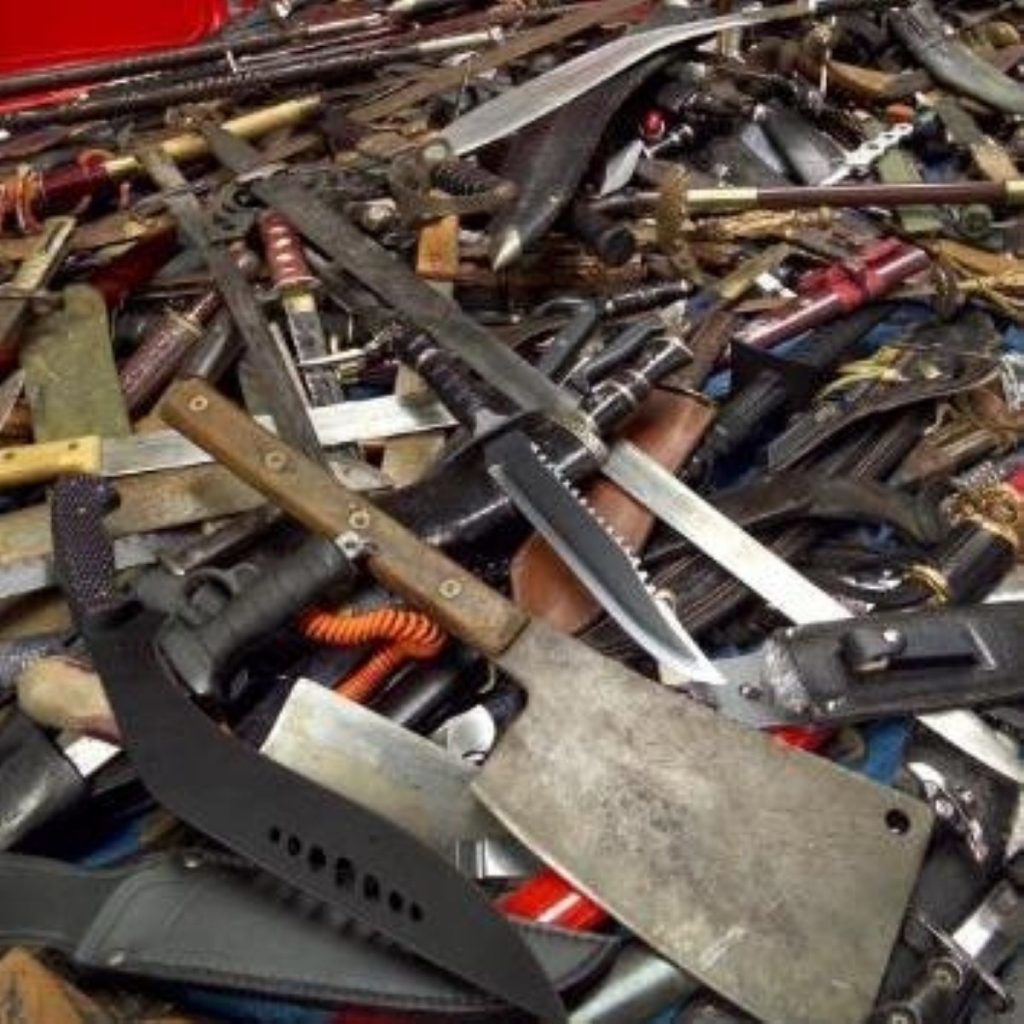90,000 knives handed in during amnesty
Almost 90,000 knives were handed in during the recent five-week amnesty in England and Wales, the Home Office has announced.
The amnesty was the first in the country for ten years and comes as the government considers raising the maximum sentence for carrying a blade in public.
A total of 89,864 knives were handed in to police forces between May 24th and June 30th, including cut-throat razors, samurai swords, axes, machetes and meat cleavers.
An 1880 bayonet was among the more unusual weapons put in the secure bins, while Devon and Cornwall police received a M72 lightweight anti-armour rocket launcher.


However, a poll by the Press Association on the last day of the amnesty revealed that there were still 91 serious knife attacks in England and Wales over the five-week period, including 19 fatal stabbings.
Home Office minister Vernon Coaker said he was “delighted” that so many knives had been taken off the streets, and said the amnesty, coupled with an ongoing programme of education, would send out a message that people should not carry knives.
“I want to send out a very strong message that carrying a knife without a legitimate reason is both dangerous and illegal. Those who carry knives must understand the weapons can be turned on them and that knives don’t make anyone safer,” he said.
Home secretary John Reid is currently considering whether to increase the maximum sentence for carrying a knife from two years, possibly to five.
The changes would be added as amendments to the violent crime reduction bill currently going through parliament. Other measures in the bill would increase the age at which someone could buy a knife from 16 to 18, and give heads new powers to search pupils.
Tony Melville, the lead on knife crime for the Association of Chief Police Officers (Acpo) and the assistant chief constable of Devon and Cornwall police, said he was pleased so many people had taken the opportunity to hand in knives during the amnesty.
“Every knife that is taken off our streets is one that cannot be used to kill, maim or intimidate,” he said.
He added: “The amnesty is certainly a step in the right direction and I hope it will prove to be a catalyst in changing the culture of routine knife possession, minimising the opportunity for the serious harm that can follow from the violent use of a knife.”









